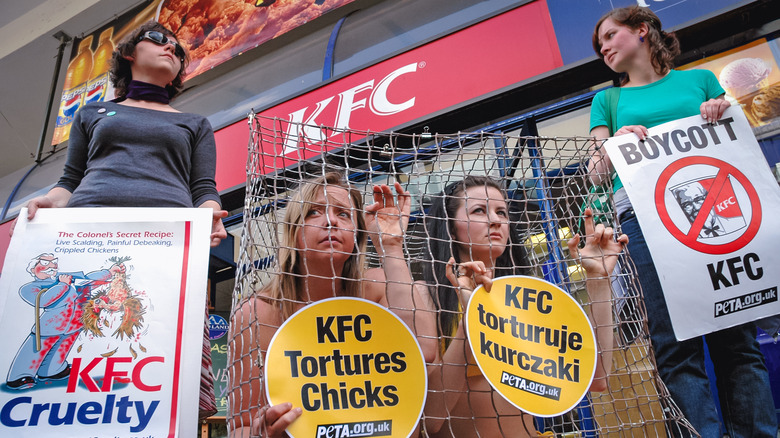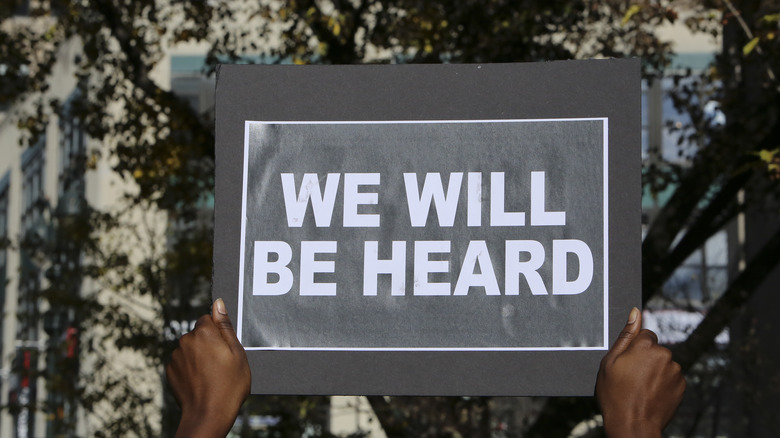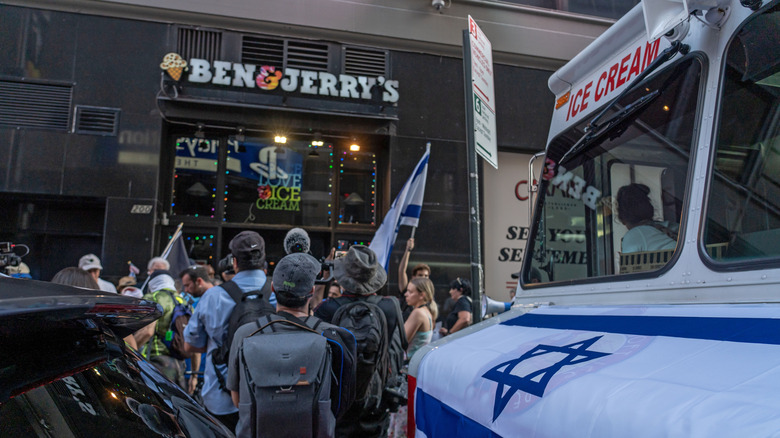Why Boycotting KFC And Other Big Companies Doesn't Work The Way You Think
In a bottom-line driven society like the one we live in today, it comes as no surprise that many of us might choose to wield our wallets as weapons to make our opinions known. This predilection was confirmed in a survey conducted in 2020 by LendingTree that found that consumers were inclined to express their unhappiness over a company's action by taking their business to a rival. The survey found that 38% of respondents were boycotting at least one company at the time the survey was conducted; 40% of consumers say the way a company treats its employees influences their decision on whether or not to do business with them; and nearly one out of every four respondents skipped a company if it has been accused of racism.
According to Matt Schultz, who is chief credit analyst for LendingTree, the survey proves "that millions of Americans just aren't willing to support a business that doesn't align with their values and they are not afraid to use their wallets and some of their financial power to take a stand when it's meaningful to them" (via ABC 7 News).
Boycotts rarely succeed in hurting the bottom line
Taking action against company because there is a misalignment in personal and corporate values is not a 21st century thing. As Professor Caroline Heldman points out in her book, "Protest Politics in the Marketplace: Consumer Activism in the Corporate Age," people were known to join boycotts as an expression of agency, and particularly if they "lacked power in formal political channels" (via Refinery29).
So do boycotts generally succeed in hurting a company where it matters? Marketing experts say, "Yes," but perhaps not in a way an activist/consumer might expect because while one might hope to use the boycott to hurt a company's sales, they actually end up accomplishing something else instead. Wharton School of Business professor Americus Reed says, "If the aim is to hurt company sales, boycotts rarely succeed. But if the aim is to undermine companies that stand in the way of a movement, there is a greater chance that a boycott may tarnish a brand" (via The New York Times).
Boycotts hurt reputations the most
It all comes down to what companies consider to be important. "Boycotts generate typically negative publicity, brands want to avoid it, and as a result they may reach out to organizers of the boycott to discuss what they should be doing," University of Maryland marketing professor Amna Kirmani tells Refinery29.
Northwestern University professor of management and organizations Brayden King agrees. He says: "The no. 1 predictor of what makes a boycott effective is how much media attention it creates, not how many people sign onto a petition or how many consumers it mobilizes." King says his research shows that boycotts which are considered to be "successful" are ones that are actually able to attract significant press attention, which as a result, causes targeted companies change its potentially problematic behaviors.
"... cultivating positive brand identity has become undoubtedly important for consumer-facing companies," says Judith Samuelson, the founder and Executive Director of the Aspen Institute's business program. She raises the example of a 2017 boycott involving Uber, which was accused of making money off former President Donald Trump's travel ban. "The real aim of the boycott that went viral seemed to be to punish a business — for placing profit over community," she said. Instead, the movement, which took place when former President Donald Trump banned seven Muslim countries, succeeded in getting the company's CEO to leave Trump's business council (via The New York Times).


